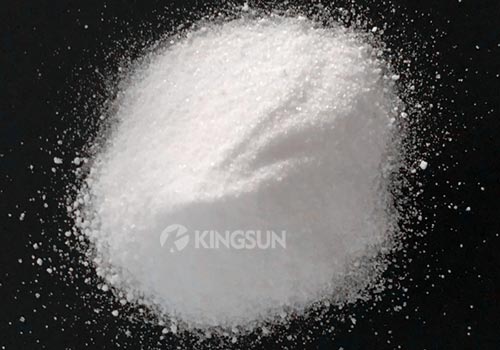As we all know, sodium gluconate can be used as a highly efficient concrete admixture in concrete, which can significantly improve the performance of concrete, ensure the quality of the project, and extend the service life of the concrete structure. Therefore, sodium gluconate concrete admixture has a wide range of application prospects in construction engineering.
Sodium gluconate plays a major role in retarding the setting of concrete. It forms a complex with calcium ions in cement, hindering the hydration reaction of cement, thereby extending the setting time of concrete. In this process, sodium gluconate for concrete does not affect the final strength development of cement, but rather helps to improve the later strength of concrete to a certain extent.
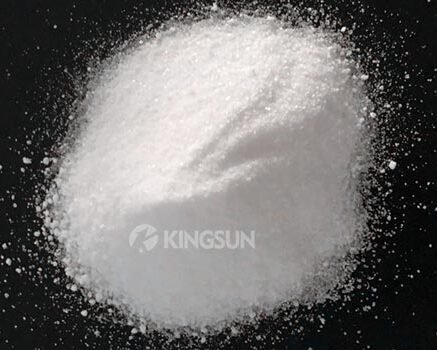 Sodium Gluconate Powder
Sodium Gluconate Powder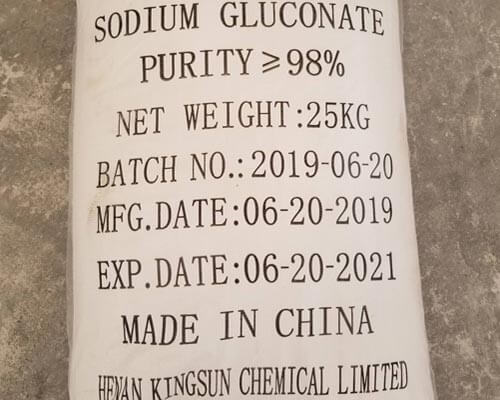 Sodium Gluconate Supplier
Sodium Gluconate Supplier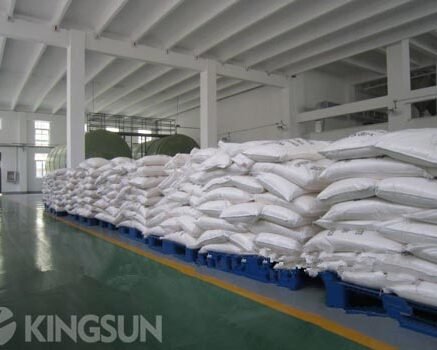 Sodium Gluconate for Sale
Sodium Gluconate for Sale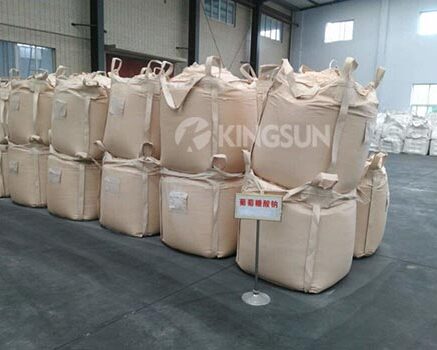 Sodium Gluconate to Korea
Sodium Gluconate to Korea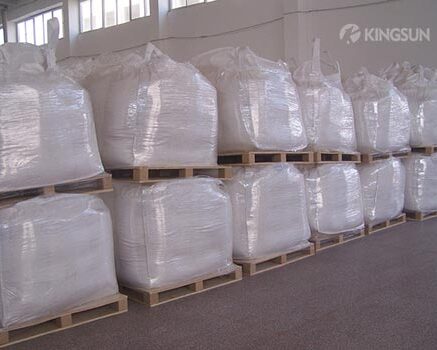 Sodium Gluconate to Pakistan
Sodium Gluconate to Pakistan
When mixing concrete, adding sodium gluconate powder or liquid form to the mixer together with raw materials such as cement, aggregate, and water in a certain proportion and mix them thoroughly. However, the specific amount of addition should be adjusted according to factors such as the performance requirements of the concrete, the construction environment, and the type of cement. Generally speaking, the amount of addition is between 0.05% and 0.2% of the weight of cement.
| Item | Sodium Gluconate |
| Appearance | White crystalline powder |
| Purity % | 98 Min |
| Loss on drying % | 0.50 Max |
| Sulfate (SO42-) % | 0.05 Max |
| Chloride (Cl) % | 0.07 Max |
| Heavy metals (Pb) ppm | 10 Max |
| Reduzate (D-glucose) % | 0.7 Max |
| PH (10% water solution) | 6.2~7.5 |
| Arsenic salt(As) ppm | 0.2 Max |
| Packing & Loading | 25 kg/PP bag, 26tons in 20’FCL without pallets; 1000kg/Jumbo bag on a pallet, 20MT in 20’FCL; 1150kg/Jumbo bag on a pallet, 23MT in 20’FCL; |
Advantages of Sodium Gluconate for Concrete
Kingsun sodium gluconate always plays a crucial role in concrete production due to its ability to act as a retarder, water reducer, and corrosion inhibitor. Its versatile properties contribute to improved workability, setting time control, and long-term durability of concrete structures. When used appropriately in concrete mixes, sodium gluconate can help ensure the successful completion of construction projects while also considering environmental sustainability.
Especially in hot areas, sodium gluconate uses in construction is important to maintain the water-cement ratio and improve the workability of concrete. Adding sodium gluconate in concrete can meet this demand and ensure that the concrete can still maintain good working performance under high temperature conditions. The following are the advantages of sodium gluconate in concrete:
- Good retarding effect. It can accurately control the setting time of concrete. Whether in a complex construction environment or for projects with special time requirements, it can ensure that the concrete maintains good plasticity within a suitable period of time. You don’t have to worry about the concrete setting too quickly and affecting the construction operation. It provides construction personnel with ample time for pouring, vibrating and other processes, greatly improving the quality and efficiency of construction.
- Improve workability. 98% sodium gluconate can effectively improve the fluidity and workability of concrete. It makes the concrete smoother during mixing, transportation and pumping, reducing the risk of blockage and segregation. This is crucial for large-scale projects or concrete construction that requires long-distance pumping, which can reduce equipment loss and construction costs.
- Enhance crack resistance. Concrete is prone to cracks during the hardening process, and the addition of sodium gluconate in concrete can reduce the occurrence of cracks. It adjusts the setting time and hydration process of concrete to better release the stress inside the concrete and reduce the possibility of cracks. This not only improves the appearance quality of concrete, but also enhances the integrity and durability of the structure.
- Strong compatibility. The sodium gluconate concrete admixture has good compatibility with different types of cement and admixtures. No matter what brand or specification of cement you use, as well as other admixtures, sodium gluconate can work with it to achieve the best effect, providing greater flexibility for concrete mix design.
- High cost-effectiveness. Although the price of sodium gluconate 98% may be slightly higher than some traditional admixtures, its advantages in improving concrete performance, reducing construction problems and extending the service life of concrete structures make it highly cost-effective in terms of comprehensive cost. In the long run, the use of sodium gluconate can reduce the cost of maintenance and replacement, bringing greater economic benefits to the project.
- Used As Concrete Water Reducer
- Precautions
- Production Process
As a water reducing agent, sodium gluconate for concrete can make concrete mixes have better processability and increase concrete slump. By adjusting the water-cement ratio and adding sodium gluconate, the strength of the concrete structure can be enhanced. Besides, the cement content can be reduced while maintaining the original strength of the concrete. By adding sodium gluconate to the concrete, you can get the following results:
- Improve the workability of concrete. When the water-cement ratio is constant, the addition of sodium gluconate can improve the workability of concrete.
- Improve the strength of concrete. When the cement content remains constant and the water content of the concrete decreases. With 0.1% sodium gluconate added, the concrete water consumption can be reduced by 10%.
- Reduce cement and water. The addition of sodium gluconate can reduce the cement content to the same proportion of water consumption. The overall water-cement ratio of the concrete remains unchanged.
- When using sodium gluconate, the amount added should be strictly controlled. Excessive addition may cause excessive retarding of concrete, affecting the construction progress and the strength development of concrete.
- Different brands and specifications of sodium gluconate may have different performances, so sufficient tests and verifications should be carried out before use to determine the best addition amount and usage method.
- Sodium gluconate should be stored in a dry and ventilated place to avoid moisture and deterioration. During use, attention should be paid to compatibility with other admixtures to avoid adverse reactions.
- Biological fermentation method is a relatively traditional method. Aspergillus niger is often used to ferment sodium gluconate. It has the advantages of low cost and easy quality control, but the production cycle is long and the mycelium is difficult to filter during the process.
- Dual enzyme method is suitable for large and medium-sized production. Glucose is converted into sodium gluconate using glucose oxidase and catalase. It has the advantages of simple process, mild reaction conditions, high product purity and short production cycle.
- Multiphase catalytic oxidation method has a simple process and a stable reaction, but the catalytic efficiency of the catalyst used will decrease after a certain number of cycles, which will increase the catalyst consumption per unit product and increase the production cost of sodium gluconate. Moreover, since metal catalysts have certain toxicity, their products are usually not used as food additives in food production. Therefore, the application of the product is subject to certain restrictions.
- In addition, electrolysis and oxidation synthesis can also be used in industry to produce sodium gluconate.
Buy Sodium Gluconate Concrete Admixture From Kingsun Factory
If you are going to buy sodium gluconate uses in concrete, then Henan Kingsun Chemical Co., Ltd. is your good choice. As a leading manufacturer and supplier of construction chemicals in China, we have more than 15 years of experience in this industry. We always regard quality, efficiency and innovation as our business philosophy.
- Kingsun has its own factory and R&D team, large warehouse, sufficient inventory, and timely delivery for customers.
- All of our products have passed ISO9001 quality management system, ISO14001 environmental management system, safety management system, etc.
- We always provide top quality sodium gluconate concrete admixture,excellent services and competitive factory prices.
- Kingsun products have exported to around 30 countries and regions, they are Israel, Indonesia, Thailand, Philippines, Vietnam, Malaysia, Singapore, Qatar, Brazil, Turkey, UAE, Saudi Arabia, Pakistan, Bangladesh, Bahrain, Mexico, Chile, South Africa, Russia, etc.

